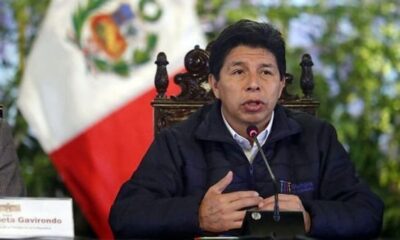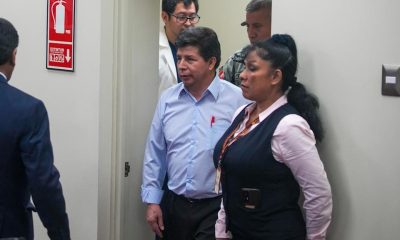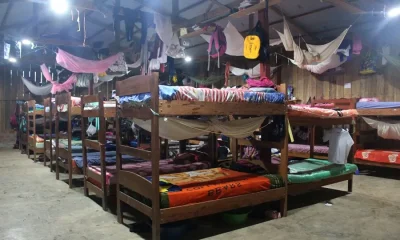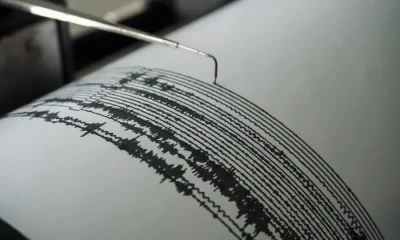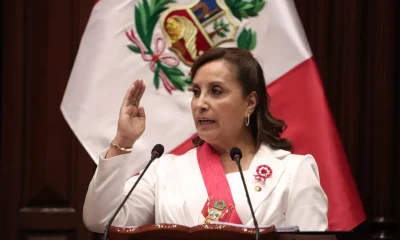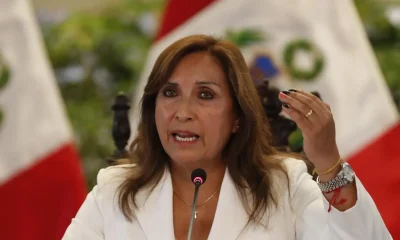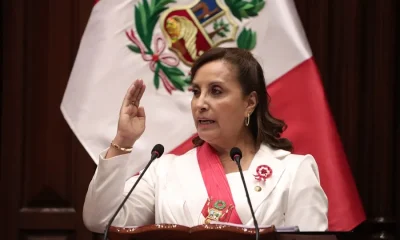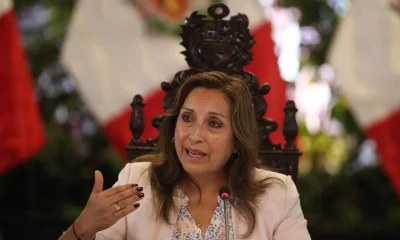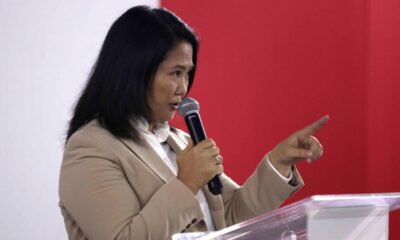International
Drought in Peru Andes proves fatal for alpacas, potato crops
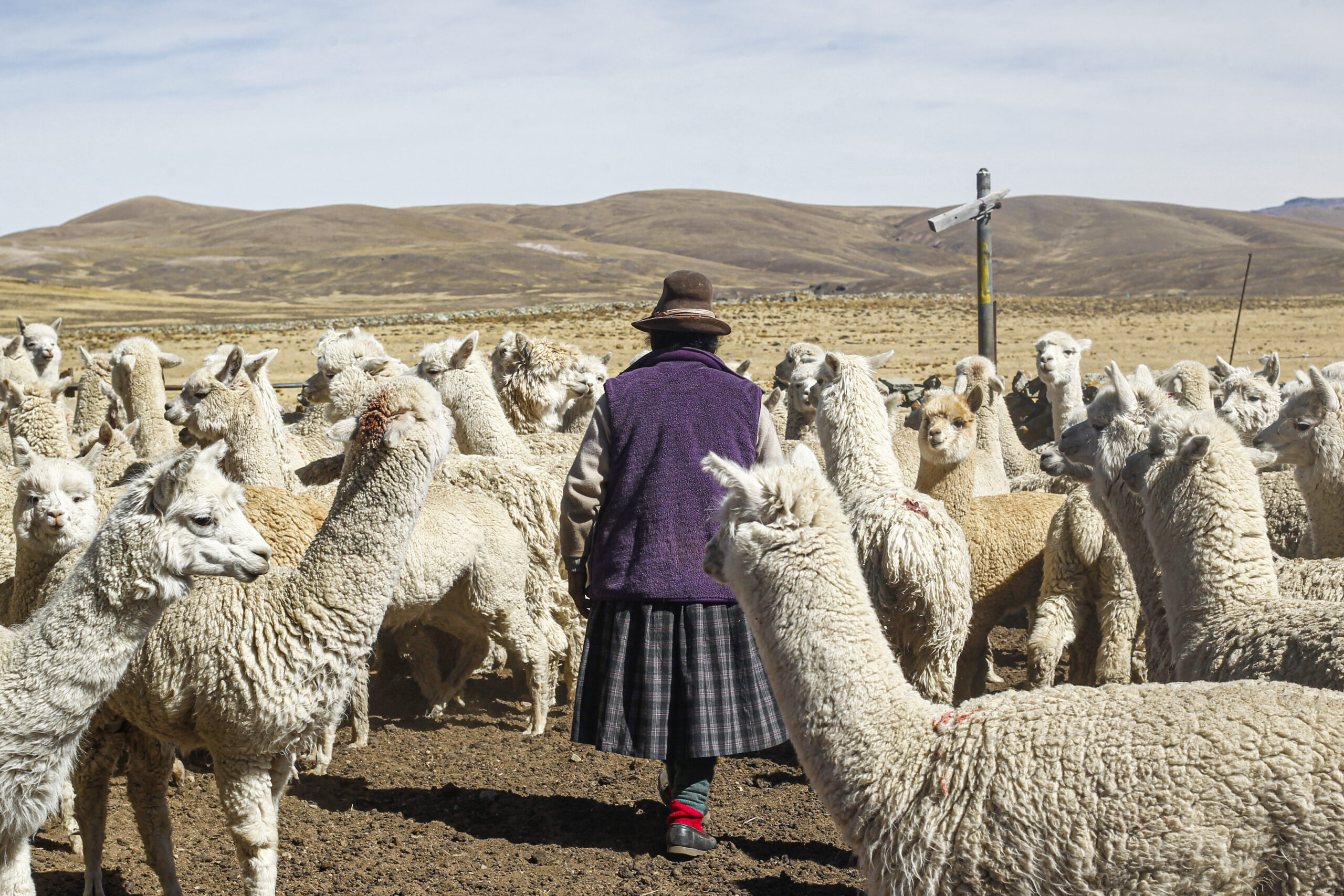
| By AFP | Juan Carlos Cisneros, with Ernesto Tovar in Lima |
A drought in the Peruvian Andes has ravaged alpaca flocks and withered potato crops, forcing the government to declare a state of emergency on Saturday for 60 days in more than 100 districts.
Hardest hit are rural communities in the Arequipa and Puno departments in Peru’s southern region, where the government decreed a state of emergency “due to imminent danger from water shortage.”
The national weather service, Senamhi, described the drought as one of the worst in the past half century, exacerbated by the offshore La Nina weather phenomenon in the central Pacific Ocean.
“November 2022 was one of the driest (months) in the last 58 years in various weather stations in the Andean region,” Senamhi reported.
Andean hamlets for Quechua- and Aymara-speaking indigenous groups have faced critical losses of crops and livestock herds.
“For lack of forage and water, the alpacas are dying. My alpacas have died,” Isabel Bellido, an alpaca farmer, told AFP from her mountain home in Lagunillas near Puno, a regional capital at 4,200 meters (12,550 feet) in elevation some 850 kilometers (530 miles) southeast of Lima.
Carlos Pacheco, a veterinarian and expert in llamas and alpacas, said a worst-case scenario would be for the drought to endure.
“The animals are already underweight, and there is no pasture,” he said.
At high altitude in the Andes, temperatures can drop to minus 20 degrees Celsius (minus four degrees Fahrenheit), and cause mass deaths of sheep and alpacas, vital to the subsistence of dwellers in mountain hamlets.
Divine supplication
In the winter of 2015, an estimated 170,000 alpacas died from extreme cold and drought in Peru.
Local press reports say hundreds of alpaca crias, or babies, and lambs have already died this year.
Shallow lakes have dried up, leaving only scattered puddles, as in the case of the Parihuanas Lagoon near Lagunillas.
In the neighboring Santa Lucia district, the Collpacocha Lagoon has completely disappeared, leaving only a cracked mud lake bed.
Near Lake Titicaca, the highest navigable inland sea in the world at 3,812 meters in elevation, the inhabitants of the Aymara-speaking village of Ichu appeal to a higher authority to end the drought.
They have taken out the venerated Catholic figure of Our Lady of the Cloud in a procession through the fields to plead for the first time in years for holy intervention to bring rain.
“We’ve planted our crops in the customary way but the potatoes aren’t sprouting because of the intense heat. It is worrisome,” said Daniel Ccama, a community leader in Ichu.
“Let the rains come Father Jesus. Don’t punish us father,” the procession participants chanted in their native Aymara.
International
Spain’s irregular migrant population rises to 840,000, study finds
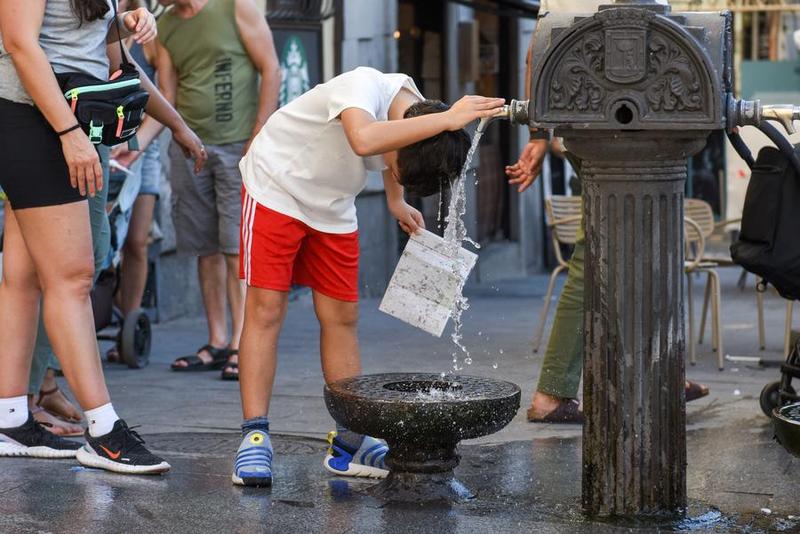
The number of migrants living in Spain without legal residency status continues to rise and has reached 840,000 people, with 91% originating from the Americas, particularly Colombia, Peru and Honduras, according to a report by the Spanish think tank Funcas (Foundation of the Savings Banks).
An estimated 17.2% of the non-EU foreign population living in Spain is in an irregular administrative situation. The estimate is based on the gap between the number of foreign residents effectively living in Spain, according to the National Statistics Institute (INE), and those who hold a residence permit, benefit from international protection, or are in the process of obtaining it.
The data, as of January 1, 2025, point to a notable and sustained increase in irregular migration since 2017, when the estimated figure stood at around 107,000 people, representing 4.2% of the non-EU population residing in Spain.
By origin, migrants from the American continent stand out, totaling around 760,000 people, or 91% of all irregular migrants. Colombians account for nearly 290,000, followed by Peruvians with almost 110,000, and Hondurans with about 90,000. Migrants from Africa (50,000), Asia (15,000) and Europe (14,000) trail far behind.
The figures predate Spain’s latest immigration regulation reform, which came into force in May 2025 and introduces measures to ease access to legal status through residency ties. According to Funcas, the reform would, in principle, tend to reduce the number of migrants in an irregular situation.
International
Historic snowstorm paralyzes Toronto after 60 centimeters of snow

Toronto, Canada’s largest city and the fourth most populous in North America, was largely paralyzed on Monday after a historic snowstorm dumped up to 60 centimeters of snow and sent temperatures plunging to -15 degrees Celsius, authorities said.
Late Sunday, as the scale of the snowfall became clear, city officials declared a climate emergency, triggering extraordinary measures including parking bans on several major streets to facilitate snow removal operations.
Toronto’s public transit authority reported that while some buses remain immobilized, subway and streetcar services are operating with relative normality, though localized disruptions may occur.
A similar situation is affecting the city’s commuter rail network, which remains operational but is experiencing significant delays on its main routes due to the severe weather conditions.
International
Venezuela frees at least 80 political prisoners, NGO says
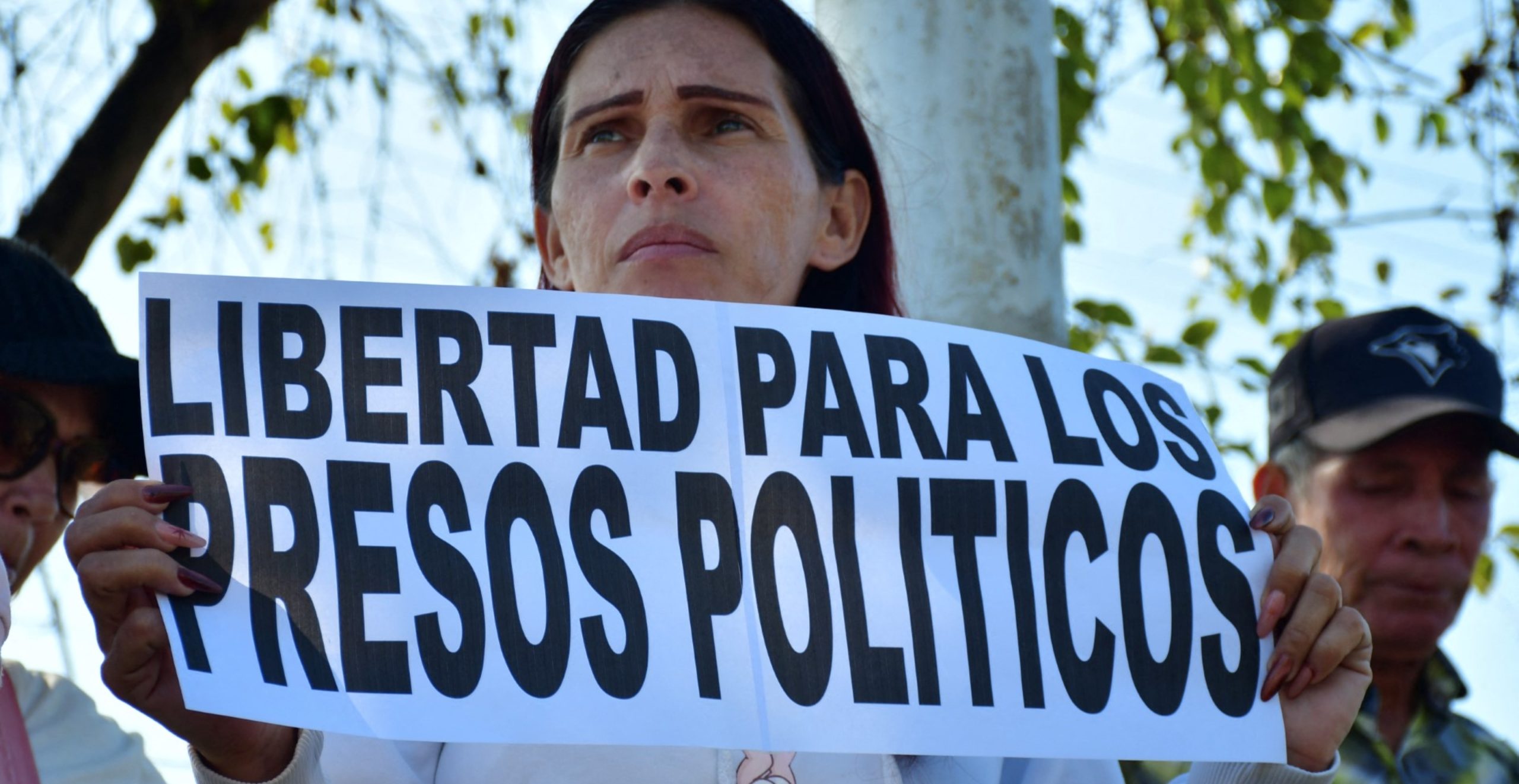
At least 80 political prisoners were released on Sunday across Venezuela, human rights group Foro Penal reported, as the broader process of detainee releases continues at a slow pace under the interim government.
Foro Penal’s director, Alfredo Romero, wrote on social media platform X that verified releases took place nationwide and that the figure could rise as more confirmations are completed.
Attorney Gonzalo Himiob, also from Foro Penal, said the excarcelations occurred during the early hours of the day and emphasized that the number is not yet final pending further verification.
The releases are part of a series of steps announced by Venezuela’s interim leader, Delcy Rodríguez, who took power after the capture of former President Nicolás Maduro in a U.S. military operation on Jan. 3, 2026. Rodríguez has pledged a significant number of liberations but has been criticized by opposition groups and rights organizations for the slow and nontransparent nature of the process.
So far, the Venezuelan government reports that 626 detainees have been freed since December, though independent counts by human rights groups suggest the number of actual political prisoner releases is lower and that many remain behind bars.
Families of those still detained have maintained vigils outside prisons, hopeful for further releases even as broader concerns about political imprisonment and due process persist.
-

 Central America4 days ago
Central America4 days agoGuatemala’s president rules out negotiations with inmates after prison riots
-

 Internacionales4 days ago
Internacionales4 days agoMajor winter storm threatens “catastrophic” ice and snow across much of the U.S.
-

 International3 days ago
International3 days agoTrump-Era Defense Plan Prioritizes Border Security and Scales Back Global Commitments
-

 Central America22 hours ago
Central America22 hours agoGuatemala seizes over a ton of cocaine hidden in flour at Pacific port
-

 International3 days ago
International3 days agoBogotá and Quito Seek Dialogue After Tariffs and Power Cut Escalate Tensions
-

 International4 days ago
International4 days agoGuatemala considers sending high-risk gang members to military prisons
-

 International2 days ago
International2 days agoDelcy Rodríguez seeks political agreements after Maduro’s ouster
-

 International2 days ago
International2 days agoFederal immigration agents kill man in Minneapolis, sparking protests and outrage
-

 International4 days ago
International4 days agoRights group says over 5,000 killed in Iran protests, mostly civilians
-

 International21 hours ago
International21 hours agoHistoric snowstorm paralyzes Toronto after 60 centimeters of snow
-

 International21 hours ago
International21 hours agoSpain’s irregular migrant population rises to 840,000, study finds
-

 International22 hours ago
International22 hours agoRights group says nearly 6,000 killed in Iran protest crackdown
-

 International22 hours ago
International22 hours agoVenezuela frees at least 80 political prisoners, NGO says
-

 International22 hours ago
International22 hours agoEU launches new probe into X over AI-generated fake nude images
-

 International22 hours ago
International22 hours agoFrance debates ban on social media for children under 15
-

 International22 hours ago
International22 hours agoSevere winter storm grips U.S., leaves multiple dead as extreme cold persists

























